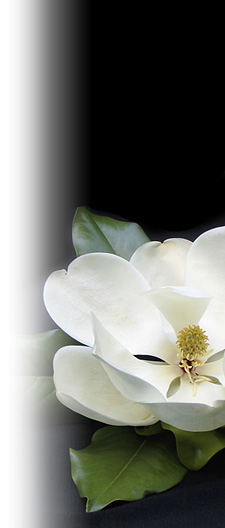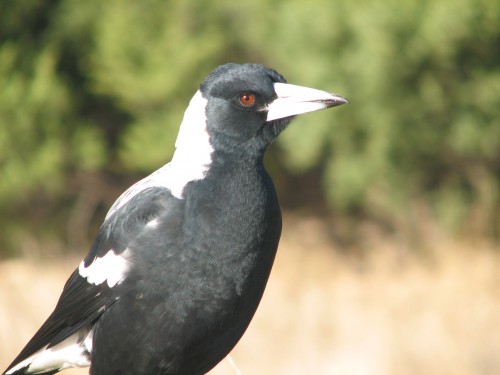Review: In Due Season by Valerie Volk
 In due season: poems of love and loss by Valerie Volk is a very special book. It is beautifully presented with delightful photographs illustrating many of the poems.
In due season: poems of love and loss by Valerie Volk is a very special book. It is beautifully presented with delightful photographs illustrating many of the poems.
While it it is a slim book physically, one cannot say that about the poems. All the poems have an impact on the reader. One is taken on a journey through her life – of joys, delights, deep emotions, frustrations, fears and faith. It is a journey from first love to deep loss, from deep contentment to the emptiness of death.
Valerie’s poems poignantly trace the roller coaster ride she encounters in 2008 when her husband is diagnosed with cancer. Some poems hark back to the early days, from their first meeting, first passions of love and the demands of young family life. Other poems are filled with agony as she sketches in verse form the deterioration of Noel’s condition. And the final poems highlight her response to his death, the experience of feeling numb at the time of his funeral, the emptiness of their home without her love and the slow and sometimes painful climb up the mountain of normality.
‘How am I?
Hard to say. I veer between
a stoic resignation – “Wonderful,” I hear them say –
and silent screams of anguish.
Somewhere in me there’s a deep gaping hole
as if a vital part has been ripped out.’from ‘A Kindness of Strangers’ p.59
I met Valerie during the time we were both completing our Master of Arts course. She has become a respected writing colleague and encouraging friend, one I deeply admire and whose comments on my own poems are highly valued.
Some of the poems in this volume I have a personal connection with, because Valerie presented them in writing workshops for critiquing during our studies for our degrees. One couldn’t help but be touched deeply by the grief she was enduring at the time but still she pressed on professionally.
Highly recommended reading.
Order the book on Valerie’s web site:
- Valerie Volk – you can order any of Valerie’s books on her website. You can also read about Valerie’s academic achievements as well as writing awards she has gained.
The photo (above right) is from the cover of her book. It has deep significance to Valerie – but you’ll have to read the book to find out why.
Reference:
Volk, Valerie, 2009. In due season: poems of love and loss. Pantaenus Press, Adelaide.
Further reading:
- Review: ‘Bystanders’ by Valerie Volk
- Review: ‘A Promise of Peaches’ by Valerie Volk
Review: Taj and the great camel trek

Cover of "Taj and the great camel trek"
Book review:
Rosanne Hawke: Taj and the great camel trek.
Published in 2011 by University of Queensland Press.
Two weeks ago I was privileged to attend the Adelaide launch of Rosanne Hawke’s latest novel. I am becoming addicted to launches of her books; this is the fourth one I’ve attended in three years. As anticipated it was a joyous time of celebration because I know how hard she has struggled with this story over the last 4 years.
The main character, twelve year old Taj, lived in Beltana in outback South Australia in the 1870s. His father is a cameleer and Taj has his own camel Mustara, a character in its own right. In fact, Taj and Mustara have featured in another Hawke book, the picture book Mustara.

Cover of "Mustara"
Taj and Mustara are invited to join explorer Ernest Giles on his second expedition across Australia from Beltana to Port Augusta and then on to Perth in Western Australia. It is not a journey to be undertaken lightly because much of the territory they planned to cover is desert, for most part uninhabited even by local Aboriginal people. The team accompanying Giles struggle with coming to terms with the isolation, their own feelings of fear, the harsh environmental conditions and the almost total lack of water. At times, they traversed many hundreds of miles without finding a drop of water. The whole journey has them on the very edge of disaster throughout, giving the reader a sense of the extreme hardships they endured.
While this is a novel, written as fiction and from Taj’s point of view, many of the incidents and characters are based on real events and real people taken from Giles’ own journal and the records in newspapers of the day. Taj himself is a fictitious character which points to the real strength of this book. Rosanne revealed at the launch that this book was originally conceived as non-fiction, but early on in her research and early drafts discovered that fiction was a far more powerful vehicle to tell the story. In this way the author has brought history to life for the reader, a delicate balancing act at the best of times. She has handled the transition with great skill. We see and feel the anxiety of the party through the eyes and emotions of Taj.
Highly recommended reading.
Links:
- Rosanne Hawke’s web site
- Taj and the great camel trek special page – including photos from the launch and teachers’ notes.
- Merchandise – buy T-shirts, mugs, ties, fridge magnets and many other items featuring the cover art work from the book. I am the proud owner of a Taj coffee mug which I use every day.
- Marrying Ameera – my review of Rosanne’s previous best selling novel, listed recently as a Notable Book.
Disclosure: Rosanne was my supervising lecturer when I completed my Master of Arts (Creative Writing) course recently. Apart from being a great friend and an amazing mentor, I gain nothing from promoting her books and the merchandise associated with it. Reviewing her books is just my way of saying ‘thank you, Rosanne.’
Rosanne Hawke and a friend
Review: Life without limits

Vujicic, Nick, 2011. Life without limits: how to live a ridiculously good life. Crows Nest, Allen & Unwin.
This book was an impulse buy. I hadn’t set out to buy it but don’t regret for one moment having spent the money. Only the night before ‘chancing’ upon the book I had seen Nick interviewed on television. I’d seen him previously on a video shown at church. This impressive young has achieved so much in his colourful life. His testimony in his book about life, dealing with life’s challenges and the role of faith in God in all that is inspirational and one of those ‘Must Read” books.
So what makes Nick different from all those other inspirational writers?
He was born without limbs.
No arms, no legs, no worries. That’s his motto. By trusting in God – and through dogged persistence and effort on his part, he has overcome most obstacles in life – and then some. Nothing seems too hard for him. He has learned to swim – yes, without arms and legs – learned to care for himself, to surf, scuba dive, skateboard and much more.
He has learned how to become a successful international motivational speaker and preacher, how to raise heaps of money – and give it away – and how to have a zany sense of humour in all the challenges life has thrown at him. And he comes up smiling every time.
Truly humbling, amazingly inspiring.
Do yourself a favour and go out and buy this book; it will change your life.
Book review: “The fearsome flute players”

The fearsome flute players
I don’t often write about another of my passions – birding – on this site. But I do include book reviews here. I’ve just finished reading a fascinating book about Australian Magpies, one of our most recognisable and best loved birds.
The book is called “The fearsome flute players: Australian Magpies in our lives.” This is not a scientific thesis paper; it is written in an entertaining and engaging manner, incorporating hundreds of stories of ordinary people in South Australia telling their encounters with these wonderful birds.
I won’t give a full review here but rather refer you to Trevor’s Birding, another site I write so you can read an extensive review of this book.
Special Offer:
The publisher a special offer to readers of my birding site. Mention Trevor’s Birding when you order online and you will also receive a CD of 200 photos of South Australia, including some beautiful photos of scenery and water birds.
I strongly recommend this wonderful book.
Good reading – good writing.
Review: Searching for the Secret River

Cover - Searching for the secret river
I have recently read Kate Grenville‘s historical novel The Secret River. You can read my review here.
Straight after finishing the novel I went on to read her follow up book Searching for the Secret River.
In this second book she goes into great detail about how she researched the novel. The story is based upon the life of her great-great-great grandfather, but she took the facts gleaned from family history and extensive research both in London and in Sydney over a five year period and transformed it into fiction. She has used fact as a broad brush in the hands of her imagination and the finished novel is brilliant. It gives the reader a much clearer view of life in the early years of settlement in the young Australian colony.
Searching for the Secret River is a fascinating expose on the thinking processes of one of our leading authors. Grenville takes us on a journey from the first inklings of an idea for a book through to the finished product. At first she was planning a non fiction book but she struck so many obstacles along the way that she changed tack completely, fictionalising it and letting her imagination run. I’m pleased she did.
While she does address some of the issues faced by all writers of fiction, this is not a handbook on writing. Sure, she does explain why she changed from first to third person, but generally it was the research that so intrigued her that she recounts in the first part of the book. Throughout she grapples with her attitudes, and those of the settlers, towards the Aboriginal people who would have lived in the Sydney area during the time in which she sets her novel. She was confronted by some very unsavoury discoveries. The reader of the novel is likewise confronted by some of the events of those days. Australian history is not always the clean, lovely accounts I read as a student many years ago.
While she has drawn from actual historical records, her novel is not another version of history. ‘I was shameless in rifling through research for anything I could use,’ she writes, ‘wrenching it out of its place and adapting it for my own purposes… What I was writing wasn’t real, but it was as true as I could make it.‘ (Grenville p. 210) She has been criticised for her (alleged) misuse of history. I think she has achieved what most other writers struggle with – she has made history come alive for the reader.
Reference:
- Grenville, K, 2007, Searching for the Secret River. WF Howes, Leicester.
